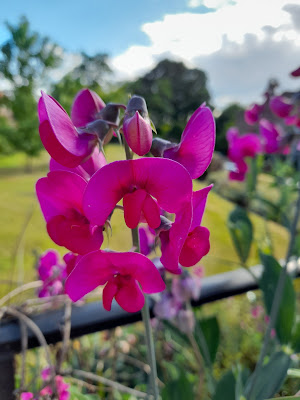I'm unconsciously accustomed to thinking in different languages, and to suddenly making connections and distinctions between them, leaping from one to another, often with mounting excitement. This is what happened last week, when I attended an online session in which Christopher Jamison OSB was talking about his new book, Finding the Language of Grace. In the conversation he talked about how we rarely mention the word grace in everyday settings, though we are much more likely to talk, instead about something being a 'disgrace'. At which point a linguistic lightbulb sprang into life within me, crossing borders and connecting in a nanosecond...
Maybe we don't consciously talk about grace much in English, but it's everyday in other languages, even if not adverted to as grace. Grazie we say in Italian, and gracias in Spanish; graces as the word for gratitude, as if showering blessings on the other. The French will say grâce à Dieu in the way we say 'thank God'; and back in English, our prayer of gratitude before a meal is called a grace.And yes, gratitude and grace share a Latin root, alongside gratis, gratuity, gracious, gratify and - yes - congratulation! They are all gratus - all thankful, all pleasing. And from gratus comes gratia - kindness, favour, esteem: the divine grace and favour Gabriel acknowledged, in all its fullness, in the young Mary.
So no, in English we often don't use the language of grace overtly: but we experience it, in all its loveliness, in every encounter with graciousness and gratitude, kindness and mercy. And every increase of these within me is an increase, an infusion, of that most pleasing, wholly gratuitous grace which flows from God's unlimited loving kindness... and for every ounce and instance of which I will always, ever be grateful...

Comments
Post a Comment